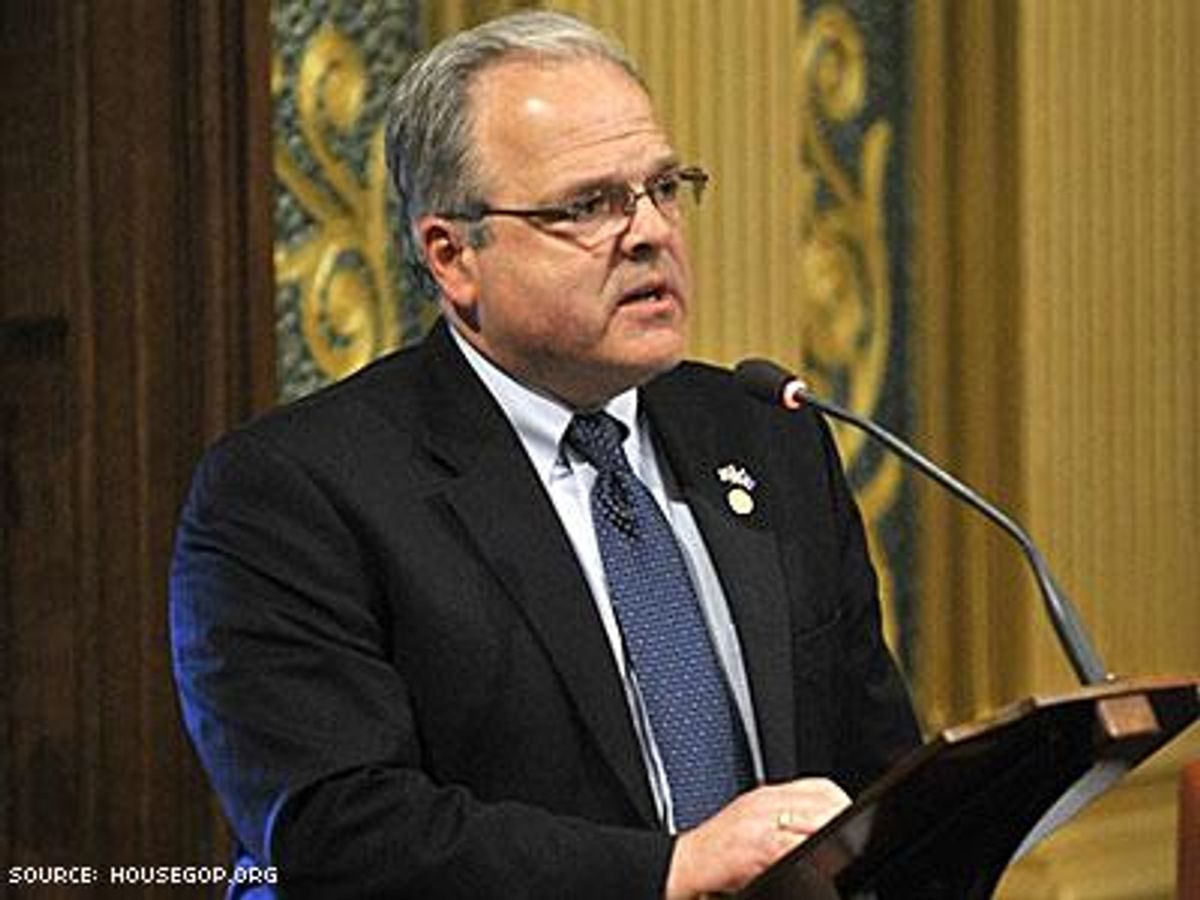A Michigan state lawmaker is leading the charge to obliterate LGBT employment protections ordinances in 38 cities across the Great Lakes State.
Republican Rep. Earl Poleski is pushing House Bill 4052, the "Local Government Employer Mandate Prohibition Act," currently under consideration by a Michigan House committee. The measure seeks to limit the ability of local governments to adopt, enforce, or administer certain local mandates for employers, specifically those protecting LGBT workers.
If passed, HB 4052 would prohibit counties, cities, and towns from adopting, enforcing, or administering any ordinance, policy, or resolution that regulates the relationship between an employer and its employees to a greater degree than that protected by state or federal law.
Those fighting the proposed law have dubbed it the "Death Star" bill, because it would impose strict state control over municipal governments.
Considering that Michigan's Elliott-Larsen Civil Rights Act of 1976 has not been updated to offer protections for sexual orientation and gender identity, this bill would make it impossible for a local government to add that kind of nondiscrimination protections. It would also effectively invalidate ordinances in the 38 municipalities in the state that have proactively extended greater protection to LGBT workers or potential employees.
"Essentially, what it aims to do is eliminate a whole series of local ordinances around the state that deal with employer-employee relationships. I'm a former city councilman, and we enacted a whole slew of ordinances designed to protect the middle class and vulnerable communities like LGBT citizens. There is an attempt by House Republicans to undo all of those protections," said Rep. Jeremy Moss, a Democrat representing Southfield, to Between The Lines News. "Included among that could be the elimination of all anti-discrimination ordinances around the state."
Moss is one of seven Democrats on the 19-member committee, and also sits on the Local Government Committee. He described what he sees as a nationwide GOP effort to pass so-called religious freedom restoration acts, supposedly to protect the sanctity of religious beliefs in nonreligious arenas like business.
As has been the case in other states that passed similar legislation (most recently in Arkansas), business leaders are voicing their concerns around the "Death Star" bill.
"The Michigan Chamber believes that all employees should be treated fairly," said Michigan Chamber of Commerce President and CEO Rich Studley in a Thursday statement. "Everyday across the state, Chamber members work hard to attract and keep good employees. We do not support employment discrimination.
"The original purpose of House Bill 4052 is to preempt local employment law ordinances that overlap, duplicate, or conflict with state labor law," continued Studley. "While continuing to support the legislation, the Chamber is working with the sponsor of the bill and other lawmakers on amendments to clarify and ensure that HB 4052 does not override local ordinances prohibiting employment discrimination in the workplace."
The committee will meet again to hear additional testimony regarding the bill on May 19.
Michigan has two other anti-LGBT bills currently pending a vote: "The Michigan Religious Freedom Restoration Act" (HB 5958), which is similar to the controversial RFRA passed and subsequently amended in Indiana, and a three-bill package that would allow for faith-based adoption agencies to refuse to serve prospective parents based on their religious beliefs. That bill passed out of the Senate Families Seniors and Human Services Committee in March, and is currently awaiting scheduling for a vote by the full Michigan Senate.














































































